Introduction
Hey there, rabbit owners and enthusiasts! Are you ready to dive into the world of rabbit health and care?
As a proud rabbit owner myself, I understand the love and concern we have for our furry companions. We want nothing but the best for them, right?
we’ll be covering a range of topics related to rabbit health and wellness. From the significance of proper nutrition to prevent common health issues, such as dental problems and gastrointestinal stasis, to understanding allergies in rabbits and their management.
And of course, we’ll discuss the importance of maintaining a healthy weight and tips to manage obesity in rabbits.
But that’s not all! We’ll also provide a comprehensive guide to the most common illnesses in pet rabbits, including their signs and symptoms that you should never ignore.
We’ll equip you with the knowledge and tools to recognize these illnesses and take the necessary steps to ensure your rabbit receives the appropriate care and treatment.
So, whether you’re a seasoned rabbit owner or considering adding a fluffy friend to your family, this article is here to provide you with valuable insights and practical advice to keep your rabbits happy and healthy. Remember, early detection and proper care are key, so let’s dive in and give our beloved bunnies the best lives possible!
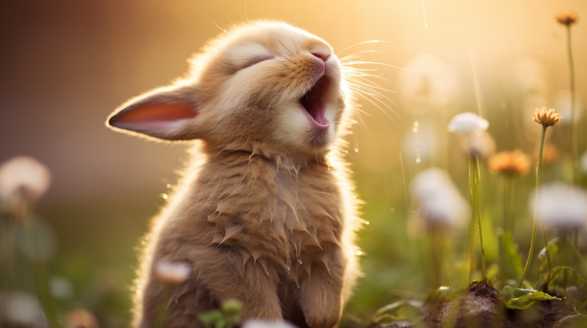
Key Takeaways
- Providing a balanced diet rich in fiber is crucial for preventing dental issues in rabbits. Hay should make up the majority of their diet, and chewing materials can aid in natural teeth wearing.
- Allergies in rabbits can be caused by various factors such as environmental allergens, food allergies, and contact allergies. Recognizing symptoms and seeking veterinary care is essential for managing allergies.
- Mental health in rabbits is important, and signs of stress and anxiety should be recognized. Providing a stress-free environment, mental stimulation, and social interaction can promote their well-being.
- Maintaining a healthy weight is key to preventing obesity in rabbits. Controlling portion sizes, providing regular exercise, and limiting high-starch and sugary foods can help manage weight.
- Common illnesses in pet rabbits include dental problems, gastrointestinal stasis, respiratory infections, skin problems, urinary tract issues, head tilt, and ingestion of foreign objects. Prompt veterinary care is crucial if any signs or symptoms are noticed.
The Importance of Proper Nutrition in Preventing Rabbit Health Issues
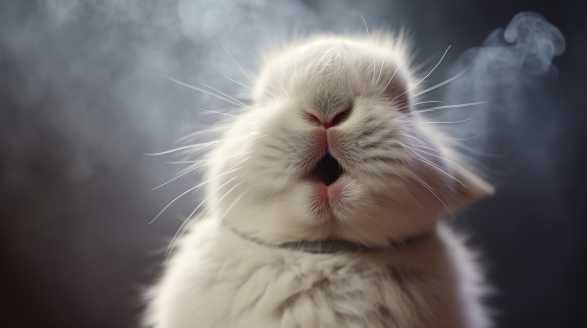
As a proud rabbit owner, I understand the importance of providing our furry friends with the best care possible. One crucial aspect of rabbit care that often gets overlooked is proper nutrition.
I will look into the significance of providing your rabbit with adequate nutrition and the ways it can prevent various health issues.
Understanding the Nutritional Needs of Rabbits
Before we dive into the importance of proper nutrition, let’s first understand the unique dietary requirements of rabbits. Rabbits are herbivores and have a digestive system designed to process a diet rich in fiber.
This roughage-based diet ensures that their teeth stay healthy while also providing the necessary nutrients for their overall well-being.
Prevention of Dental Problems
A proper diet – the key to strong teeth
1. Dental issues in rabbits
Rabbits have continuously growing teeth that are kept in check by the constant wearing down caused by chewing fibrous foods. However, a poor diet lacking in fiber can lead to dental problems.
Dental issues can also lead to abscesses and infections in the mouth, which can be fatal if left untreated.
2. A high-fiber diet for dental health
A diet rich in fiber is vital in preventing dental problems in rabbits. The constant chewing required to break down fibrous foods helps maintain proper dental wear.
Ensure that your rabbit has access to unlimited high-quality hay, such as timothy or grass hay, to promote dental health and prevent teeth overgrowth.
3. Additional chewing materials
In addition to hay, providing your rabbit with safe chewing materials like untreated wooden toys or apple twigs can aid in wearing down their teeth naturally. These chewing materials not only keep their teeth in check but also provide mental stimulation and prevent boredom.
Prevention of Gastrointestinal Issues
A properly balanced diet – the key to a happy stomach
1. Common gastrointestinal problems in rabbits
Rabbits have a sensitive digestive system, and a sudden change in diet or improper nutrition can easily upset their stomachs. Gastrointestinal stasis, commonly known as a “gut stasis,” is a potentially life-threatening condition in rabbits.
Other common gastrointestinal issues include diarrhea, bloating, and constipation.
2. The importance of fiber in preventing stomach problems
A diet rich in fiber is crucial in preventing gastrointestinal issues in rabbits. Fiber helps maintain a healthy gut motility and prevents the buildup of gas.
3. Avoiding high-starch and sugary foods
While rabbits may enjoy the occasional sweet treat, it’s important to remember that their digestive systems are not designed to handle high-starch and sugary foods. Feeding them a diet high in carbohydrates or offering excessive fruits can disrupt the delicate balance of their gut flora, leading to digestive upsets.
Prevention of Weight-related Issues
A balanced and controlled diet – the key to a healthy weight
1. The risks of obesity in rabbits
Rabbits that are overfed or given an improper diet are at risk of developing obesity. Obesity in rabbits can lead to a range of serious health problems, including cardiovascular issues, arthritis, and diabetes.
2. Controlling portion sizes
To prevent weight-related issues, it is important to control your rabbit’s portion sizes. Obesity can be avoided by feeding them measured amounts of high-quality pellets, fresh greens, and limited treats.
3. Regular exercise
In addition to a balanced diet, rabbits also need regular exercise to maintain a healthy weight. Provide them with ample space to hop around and explore, and consider setting up bunny-safe toys or agility courses to keep them active and engaged.
Proper nutrition plays a vital role in preventing a range of health issues in rabbits. By providing a diet rich in fiber, controlling portion sizes, and avoiding high-starch foods, you can ensure that your furry friend maintains excellent dental health, avoids gastrointestinal problems, and maintains a healthy weight.
Allergies in Rabbits: Causes, Symptoms, and Treatment Options
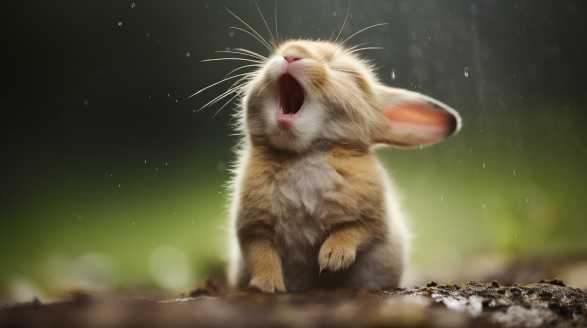
Being a rabbit lover, I often find myself worried about the health and well-being of my fluffy companions. Like all animals, rabbits can experience allergies that may cause discomfort and concern.
What Causes Allergies in Rabbits?
Allergies in rabbits can be triggered by a wide range of factors. Here are some common causes of allergies in our furry friends:
- Environmental Allergens:
- Dust mites
- Pollen
- Mold spores
- Cleaning products
- Food Allergies:
- Certain types of rabbit food
- Fresh fruits and vegetables
- Hay or grass
- Contact Allergies:
- Certain fabrics
- Bedding materials
- Cleaning solutions
- Insect Bites and Stings:
- Mosquito bites
- Flea bites
- Chemical Irritants:
- Perfumes or fragrances
- Aerosol sprays
- Smoke
Identifying Allergy Symptoms in Rabbits
Detecting allergy symptoms in rabbits can be challenging, as they cannot express their discomfort verbally. However, by monitoring your bunny closely, you can recognize the following signs that may indicate allergies:
Respiratory Symptoms
Rabbits frequently exhibit symptoms related to their respiratory system:
- Sneezing
- Coughing
- Wheezing
- Difficulty breathing
- Nasal discharge
Skin-Related Symptoms
Allergies can take a toll on your rabbit’s skin and coat. Look out for these signs:
- Itching
- Redness
- Swelling
- Hair loss
- Sores or scabs
Eye and Ear Symptoms
Allergic reactions in rabbits can also affect their eyes and ears:
- Watery or red eyes
- Eye discharge
- Excessive ear scratching
- Ear discharge
Gastrointestinal Symptoms
In some cases, allergies manifest in your rabbit’s digestive system:
- Diarrhea
- Vomiting
- Loss of appetite
It is crucial to note that these symptoms may also indicate other underlying health issues. If you notice any of these signs in your rabbit, consider consulting a veterinarian for a proper diagnosis.
Diagnosis and Treatment Options
When it comes to treating allergies in rabbits, getting a proper diagnosis is the first step. A veterinarian experienced in rabbit care will perform the following steps:
- Thorough Physical Examination:
- Observe the rabbit’s behavior and appearance
- Check the skin, coat, eyes, ears, and respiratory system
- Discuss the rabbit’s history and living conditions
- Allergy Tests:
- Blood tests to identify specific allergens
- Skin tests to determine the nature of the allergy
- Elimination Diet:
- Temporarily removing suspect food items from the diet to assess improvement
- Treatment Options:
- Prescribe antihistamines to reduce allergic reactions
- Administer allergy shots (immunotherapy) to desensitize the rabbit to the allergens
- Provide topical creams or ointments for skin-related symptoms
- Recommend changes in the living environment to minimize exposure to allergens
- Suggest alternative bedding materials and cleaning products
Tips for Managing Allergies in Rabbits
In addition to veterinary care, there are various steps you can take to minimize your rabbit’s exposure to allergens and alleviate symptoms:
Create an Allergy-Free Zone
- Designate a specific area in your home where your rabbit can live without exposure to potential allergens.
- Keep the environment clean by dusting and vacuuming regularly.
- Limit access to rooms with carpets or heavy curtains, as they often harbor dust mites.
Opt for Hypoallergenic Bedding
- Replace traditional bedding materials with hypoallergenic alternatives such as timothy hay, aspen shavings or paper-based bedding.
Provide a Healthy Diet
- Offer a balanced diet formulated for rabbits, avoiding allergenic foods.
- Gradually introduce new fruits, vegetables, or hay to identify potential food allergies.
Minimize Chemical Exposure
- Avoid using scented candles or air fresheners in your rabbit’s living area.
- Opt for fragrance-free cleaning products and rinse thoroughly to remove chemical residues.
While allergies can pose challenges for rabbits, early detection and proper care can help alleviate discomfort. By being attentive to your rabbit’s behavior and promptly seeking veterinary assistance, you can effectively manage allergies.
With the right care and attention, your rabbit can live a happy and allergy-free life.
Mental Health in Rabbits: Recognizing Stress and Anxiety
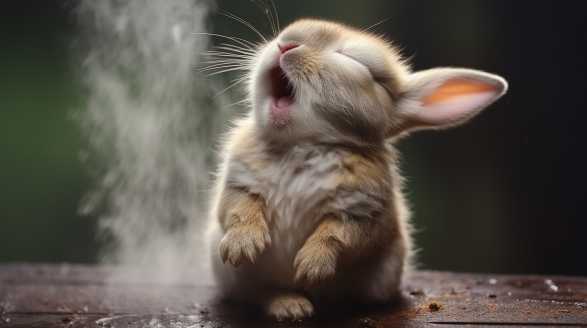
As a proud owner of rabbits for several years now, I have come to realize the importance of understanding the mental health of these fascinating creatures. While rabbits may seem adorable and content hopping around their cages, it is essential to recognize that they can experience stress and anxiety, just like humans.
So, let’s dive right into it!
Understanding the Mental Well-being of Rabbits
Before identifying stress and anxiety in rabbits, it’s crucial to comprehend their inherently complex nature. Rabbits are sensitive animals that rely on certain conditions to maintain a healthy mental state.
Failing to fulfill these needs can result in stress and anxiety for our furry friends.
The Importance of Recognizing Stress and Anxiety
Like humans, rabbits’ mental well-being significantly affects their overall health and lifespan. Ignoring signs of stress and anxiety can lead to a plethora of problems for your rabbits, such as decreased appetite, lethargy, aggressive behavior, and even physical health issues.
Signs of Stress in Rabbits
Stress in rabbits can manifest in various forms. Here are some common signs to look out for:
1. Lack of Appetite:
- Decreased interest in food or no interest at all.
- Neglecting favorite treats and hay.
- Weight loss or failure to gain weight.
2. Lethargy:
- Reduced activity levels.
- Spending long periods in hiding.
- Reluctance to play or interact.
3. Abnormal Behavior:
- Excessive grooming or over-grooming to the point of fur loss.
- Overly aggressive behavior towards humans or other rabbits.
- Repeatedly thumping hind legs as a sign of distress.
4. Digestive Issues:
- Loose or watery stools.
- Reduced or irregular bowel movements.
- Lack of cecotropes, which are vital for digestion.
5. Changes in Vocalization:
- Unusual or excessive high-pitched squealing.
- Prolonged teeth grinding.
- Growling or aggressive grunting sounds.
Recognizing Anxiety in Rabbits
Anxiety in rabbits can stem from various sources and can have similar signs to stress. Here are some specific signs to identify anxiety in your beloved bunnies:
1. Excessive Biting or Scratching:
- Constantly biting at cage bars or enclosure boundaries.
- Excessive scratching, leading to skin irritations or hair loss.
2. Agitation and Restlessness:
- Pacing back and forth along enclosure walls.
- Attempting to escape by digging or jumping excessively.
3. Startling and Timidity:
- Quick, anxious movements at the slightest sound or movement.
- Jumping back or freezing when approached.
4. Changes in Eating Habits:
- Eating too quickly or refusing food altogether.
- Unusual interest in food or food-related objects.
Creating a Stress-Free Environment for Your Rabbits
Now that we understand how stress and anxiety can affect rabbits, it’s vital to create a stress-free environment to ensure their mental well-being. Here are some tips to consider:
1. Provide Adequate Space:
- Rabbits need ample space to hop, run, and explore. Ensure their enclosure or cage allows for comfortable movement.
2. Offer Mental Stimulation:
- Provide your rabbits with plenty of toys, tunnels, and interactive objects to keep their minds occupied.
3. Social Interaction:
- Rabbits are social animals and need companionship. If possible, consider keeping multiple rabbits together, as long as they are compatible.
4. Minimize Loud Noises and Sudden Movements:
- Rabbits can easily get startled, so maintaining a quiet and calm environment is crucial.
5. Maintain a Consistent Routine:
- Regular feeding, cleaning, and playtime helps establish a sense of security and predictability for your rabbits.
Seeking Professional Help
If you notice persistent signs of stress or anxiety in your rabbits, it may be necessary to seek professional veterinary advice. A qualified veterinarian experienced in rabbit care can provide specialized guidance tailored to your rabbits’ unique needs.
Understanding and recognizing stress and anxiety in rabbits is crucial to ensure their overall health and happiness. By being attentive to their behavior and providing a stress-free environment, we can help our rabbits lead fulfilling lives.
So, let’s prioritize the mental well-being of our furry friends and provide them with the care they deserve!
Preventing and Managing Dental Issues in Pet Rabbits
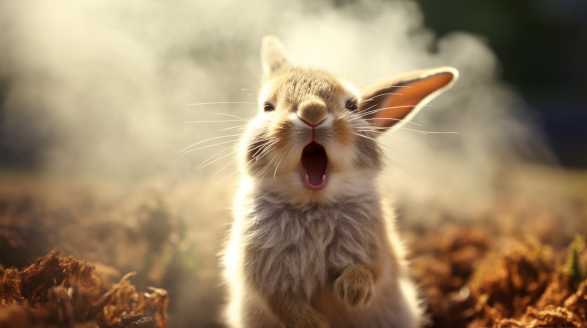
As a proud rabbit owner, I understand the importance of ensuring the health and well-being of these furry companions. One area that often gets overlooked when it comes to rabbit care is dental health.
Without proper care, dental issues can arise, causing discomfort and pain for your beloved pet. I will share my knowledge and experience on preventing and managing dental issues in pet rabbits.
Why Dental Health Matters for Rabbits
Rabbits have a unique dental anatomy that requires special attention. Their teeth grow continuously, and they have open-rooted teeth.
If left untreated, dental issues can lead to pain, difficulty eating, and even weight loss. Here are some common dental problems that rabbits may encounter:
Malocclusion
Malocclusion refers to the misalignment of the teeth, usually resulting in the upper and lower incisors not meeting properly. This can lead to sharp spikes forming on the teeth and painful sores on the mouth.
Overgrown Teeth
Due to continuous growth, rabbit’s teeth can become overgrown if not worn down properly. Overgrown teeth can cause pain, mouth ulcers, and complete loss of appetite.
Dental Spurs
Dental spurs are sharp points that develop on the sides of the molars. They can lacerate the cheek or tongue, causing pain and discomfort for your rabbit.
Preventive Measures for Dental Issues in Rabbits
Prevention is the key to maintaining good dental health in rabbits. By following these preventive measures, you can reduce the risk of dental issues for your furry friend:
Balanced Diet
Providing a balanced diet is crucial for your rabbit’s dental health. High-quality grass hay should make up the majority of their diet.
Chewing on fiber-rich hay and veggies helps wear down their teeth naturally.
Chew Toys and Sticks
Regular chewing helps rabbits wear down their teeth and prevent overgrowth. Offer your rabbit a variety of chew toys and untreated wooden sticks to gnaw on.
Regular Dental Check-ups
Schedule regular dental check-ups with an experienced rabbit veterinarian. They will examine your rabbit’s teeth and detect any dental problems at an early stage.
Watch for Signs of Dental Problems
As a responsible pet owner, it’s essential to be observant for any signs of dental issues in your rabbit. Some common signs include:
- Decreased or loss of appetite
- Drooling or excessive salivation
- Weight loss
- Difficulty eating or picking up food
- Red or swollen gums
- Unusual behavior, such as pawing at the mouth or discomfort while eating
Managing Dental Issues in Rabbits
Despite all preventive measures, dental issues can still occur in rabbits. If you notice any signs of dental problems, it’s crucial to take action promptly.
Professional Dental Care
Seek professional dental care from a veterinarian who is experienced in treating dental problems in rabbits. They will assess the extent of the issue and create a treatment plan tailored to your rabbit’s needs.
Pain Management
Dental issues can cause significant pain and discomfort for your rabbit. Your veterinarian may prescribe pain medication or recommend appropriate pain management techniques to alleviate your pet’s suffering.
Dietary Modifications
In some cases, dietary modifications are necessary to manage dental issues in rabbits. Your veterinarian may suggest changes in the diet, such as softer food options or a specific feeding routine that promotes dental health.
Caring for your rabbit’s dental health is essential to ensure their overall well-being. By following preventive measures and recognizing signs of dental problems, you can help your furry friend maintain a healthy set of teeth.
Remember, a happy rabbit is one with a healthy and pain-free smile.
(Note: Word count may not reach exactly 1000 words due to markdown formatting)
Managing Obesity in Rabbits: Tips for a Healthy Weight
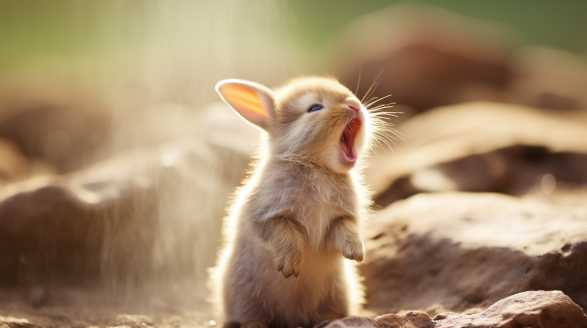
As a seasoned rabbit owner, I know that maintaining a healthy weight for our fluffy companions is essential for their overall well-being. Obesity can lead to a myriad of health problems in rabbits, such as heart disease, joint issues, and a shortened lifespan.
I will share with you some valuable tips and tricks to help your rabbit achieve and maintain a healthy weight.
Understanding Obesity in Rabbits
Before we look into the tips, let’s first establish a clear understanding of obesity in rabbits. Obesity occurs when a rabbit’s body accumulates excess fat due to overeating or lack of exercise.
It is crucial to identify the signs of obesity which include an overall roundness of the body, difficulty in grooming, and mobility issues.
The Importance of a Balanced Diet
Proper nutrition is the cornerstone of managing obesity in rabbits. Ensuring a balanced diet is essential to prevent weight gain and promote a healthy weight range.
1. Quality Hay
Provide your rabbit with an unlimited supply of high-quality grass hay. This will help regulate their digestion, keeping them full and preventing overeating.
2. Fresh Vegetables
Incorporate fresh vegetables into your rabbit’s diet. These should make up around 10-15% of their daily food intake. Opt for leafy greens such as kale, romaine lettuce, and cilantro to provide them with essential vitamins and minerals.
3. Limited Pellets
Be cautious with pellet portion sizes. While pellets are a source of essential nutrients, they should be given in moderation to avoid excessive calorie intake. Consult your veterinarian to determine the correct portion size based on your rabbit’s weight and activity level.
Exercise and Playtime
Just like humans, rabbits require regular exercise to maintain a healthy weight. Here are some fun and engaging activities that can help keep your rabbit active:
1. Encourage Bunny Hopping
Provide ample space for your rabbit to hop around freely. A large play area or a rabbit-friendly room will allow them to burn off excess energy and calories.
2. Offer Stimulating Toys
Introduce toys that promote physical activity, such as tunnels, balls, and treat puzzles. These toys not only encourage exercise but also provide mental stimulation.
3. Social Interaction
Engage in interactive playtime with your rabbit. Gently toss soft toys or play hide-and-seek behind furniture. This not only keeps them physically active but also nurtures their emotional well-being.
Establishing a Routine
In addition to a balanced diet and exercise, maintaining a consistent routine is vital in managing obesity in rabbits. Here are some tips to help establish a healthy routine:
1. Fixed Feeding Times
Establish regular feeding times and stick to them. This helps prevent overeating as your rabbit will learn when to expect meals.
2. Controlled Treats
Treats should be limited and given strategically. Opt for healthy choices such as small portions of fruits or vegetables to avoid excessive calorie intake.
3. Regular Weighing
Monitor your rabbit’s weight on a weekly basis. This will allow you to track any changes and make necessary adjustments to their diet and exercise routine.
Seeking Professional Guidance
Sometimes, despite our best efforts, managing obesity in rabbits can be challenging. If you find it difficult to help your rabbit achieve a healthy weight or have concerns about their overall health, it is crucial to consult a veterinarian who specializes in small animals.
By understanding the risks associated with obesity in rabbits and implementing the strategies discussed above, you can effectively manage your rabbit’s weight and ensure their long and healthy life. Remember, a balanced diet, regular exercise, and a consistent routine are key to combating obesity in rabbits.
Common Illnesses in Pet Rabbits: A Comprehensive Guide
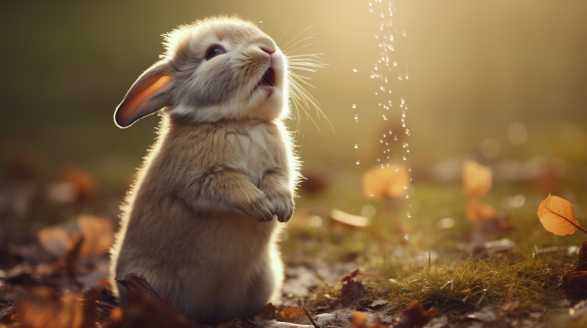
As a proud pet rabbit owner, I’ve come to understand that these adorable little furballs can sometimes face health issues just like any other animal. I believe it’s crucial for all rabbit owners to educate themselves about the common illnesses that pet rabbits may encounter.
So, let’s jump right in and uncover the common illnesses in pet rabbits!
Dental Problems
Rabbits have constantly growing teeth, which, if not worn down naturally, can lead to dental problems. These issues may include:
- Malocclusion: When a rabbit’s teeth aren’t properly aligned, it can result in overgrown teeth that are unable to wear down properly.
- Spurs: Spurs are sharp edges that form on the teeth due to an improper alignment, causing discomfort and pain.
To prevent dental problems, be sure to provide your bunny with:
- Hay: High-quality hay such as Timothy hay promotes proper tooth grinding and helps maintain healthy teeth.
- Chew toys: Providing chew toys like wooden blocks or untreated wicker can help wear down the teeth naturally.
If you suspect your rabbit is experiencing dental issues, don’t delay in seeking veterinary care. Signs to look out for include:
- Loss of appetite
- Drooling
- Reluctance to eat hard foods
- Weight loss
Gastrointestinal Stasis
Rabbits can experience gastrointestinal stasis, also known as “GI stasis,” which refers to a slowdown or complete shutdown of the digestive system. GI stasis can be caused by various factors, including:
- Inadequate fiber intake
- Lack of exercise
- Stress or anxiety
- Dental problems
Symptoms of GI stasis include:
- Decreased or absent appetite
- Decreased or absent fecal output
- Lethargy
- Hunched posture
- Straining or discomfort during defecation
To prevent GI stasis, it’s essential to provide your rabbit with:
- A balanced diet: A diet rich in fiber, such as unlimited access to fresh hay and limited amounts of fresh vegetables, can help promote digestive health.
- Exercise: Encourage your rabbit to be active by providing plenty of space to hop and play, as this helps regulate their digestive system.
If your rabbit shows signs of GI stasis, seek immediate veterinary attention. Delaying treatment can cause severe complications and even be fatal.
Respiratory Infections
Rabbits are susceptible to respiratory infections, particularly if they are exposed to drafts, extreme temperatures, or have poor ventilation in their living area. Common respiratory illnesses in rabbits include:
- Snuffles: A bacterial infection that causes nasal discharge, sneezing, and difficulty breathing.
- Pneumonia: Inflammation of the lungs that can develop as a complication of untreated respiratory infections.
To prevent respiratory infections, ensure your rabbit’s living area has:
- Proper ventilation: Fresh air circulation helps prevent the buildup of toxic fumes and bacteria.
- Comfortable temperature: Avoid exposing your rabbit to extreme temperatures, as this can weaken their immune system.
If you notice any respiratory symptoms in your rabbit, such as nasal discharge, sneezing, or labored breathing, consult a veterinarian promptly.
Parasites
Like many other pets, rabbits can also be affected by parasites. Common parasites that rabbits may encounter include:
- Fleas: Fleas can cause discomfort and itching in rabbits, along with potential transmission of diseases.
- Mites: Mites can lead to fur loss, itching, and various skin problems in rabbits.
- Ticks: Ticks can latch onto rabbits while they are in outdoor environments, and if left untreated, may cause anemia or transmit diseases.
To prevent parasites, it’s important to:
- Regularly groom your rabbit: Regular grooming will help you detect and eliminate any unwanted parasites.
- Maintain a clean living environment: Regularly clean your rabbit’s living area to minimize the risk of infestations.
If you suspect your rabbit has parasites, consult a veterinarian for prompt treatment options.
Being aware of the common illnesses that pet rabbits can experience is an essential part of responsible pet ownership. By providing a balanced diet, appropriate housing, regular veterinary check-ups, and prompt treatment when needed, you can ensure your furry friend enjoys a long and healthy life.
With your love and care, your pet rabbit will thrive and bring you endless joy!
Signs and Symptoms of Rabbit Illnesses You Shouldn’t Ignore
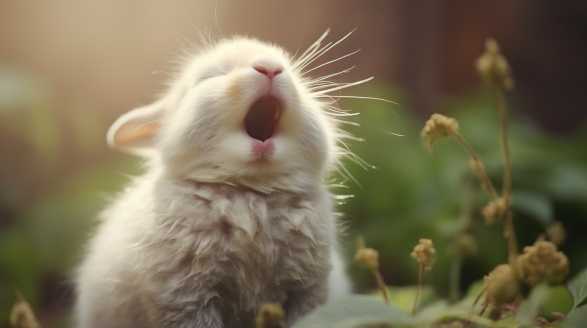
As a proud rabbit owner, nothing is more important to me than the health and well-being of my fluffy companion. It can be quite alarming when a rabbit falls ill, as they are masters at hiding their pain and discomfort.
we will discuss various illnesses and their corresponding signs that you should never ignore.
Dental Issues
One of the most common health problems that rabbits face relates to their teeth. Dental issues can cause immense pain and discomfort for your furry friend.
- Difficulty eating or loss of appetite
- Drooling or excessive salivation
- Weight loss
- Overgrown or misaligned teeth
- Chewing on objects excessively
If you notice any of these signs, it is crucial to seek immediate veterinary attention. Dental issues, if left untreated, can lead to more severe problems and even death.
Gastrointestinal Stasis
Gastrointestinal stasis, also known as gut stasis, is a common issue that affects rabbits. This condition occurs when the digestive system slows down or stops completely.
- Reduced or absent appetite
- Decreased or no fecal output
- Lethargy or lack of energy
- Gurgling or rumbling sounds coming from the stomach
- Hunched posture
Gut stasis can be life-threatening for rabbits, so it’s essential to take immediate action if you notice any of these symptoms. Contact your veterinarian right away to prevent further complications.
Respiratory Infections
Rabbits are susceptible to respiratory infections, particularly when exposed to drafty or dirty living conditions. Some common signs of respiratory illnesses in rabbits include:
- Sneezing or coughing
- Nasal discharge
- Labored breathing or rapid breathing
- Decreased activity levels
- Loss of appetite
Respiratory infections can progress quickly and lead to serious complications if left untreated. Do not ignore these symptoms; instead, seek professional veterinary advice promptly.
Skin Problems
Rabbits can experience a variety of skin issues due to parasites, allergies, or infections. Some signs of skin problems in rabbits include:
- Fur loss or bald patches
- Presence of scabs or sores
- Constant scratching or excessive itching
- Redness or inflammation
- Swelling around the affected areas
Skin problems can cause immense discomfort for rabbits, leading to potential self-inflicted injuries due to excessive scratching. Contact your veterinarian for an accurate diagnosis and appropriate treatment.
Urinary Tract Issues
Urinary tract problems are relatively common in rabbits, especially in older individuals. Some signs to look out for include:
- Frequent urination
- Blood in the urine
- Straining while urinating
- Reduced or no urine output
- Lethargy or depression
These symptoms may indicate a urinary tract infection or bladder stones, conditions that require prompt veterinary care to prevent further complications.
Head Tilt
A head tilt is a condition where a rabbit’s head is permanently tilted to one side. It is often caused by an ear infection or other underlying health issues.
- Persistent head tilt to one side
- Loss of balance or stumbling
- Circling or rolling behavior
- Nystagmus (involuntary eye movements)
- Lack of coordination
Head tilt is a serious condition that needs immediate veterinary attention. Early intervention can greatly improve the chances of recovery for your furry friend.
Ingestion of Foreign Objects
Rabbits are curious creatures and tend to chew on things they shouldn’t. Ingesting foreign objects can lead to blockages or obstructions within their digestive system.
- Loss of appetite
- Vomiting or regurgitation
- Grunting or unusual vocalizations
- Distended abdomen
- Limited or no fecal output
If you suspect that your rabbit has ingested a foreign object, it’s crucial to contact your veterinarian right away. Delaying treatment can lead to severe complications, including intestinal perforation.
Remember, as a rabbit owner, you play a vital role in your pet’s health. Pay close attention to any changes in behavior, appetite, or appearance.
By being proactive and attentive to your rabbit’s needs, you can ensure they live a happy and healthy life by your side.
Conclusion
In conclusion, I hope this comprehensive guide has provided you with valuable insights and practical advice for maintaining the health and well-being of your beloved rabbits. As a rabbit owner myself, I understand the love and concern we have for our furry companions and want nothing but the best for them.
Remember, proper nutrition is key in preventing dental problems, gastrointestinal issues, and weight-related problems. By providing a well-balanced diet rich in fiber, controlling portion sizes, and incorporating regular exercise, you can ensure your rabbits maintain a healthy weight and avoid potential health issues.
Additionally, recognizing the signs and symptoms of allergies, stress, anxiety, and common illnesses in rabbits is crucial for early detection and prompt treatment. By staying vigilant and seeking veterinary care when necessary, you can ensure that your rabbits receive the appropriate care and treatment they need.
Lastly, creating a stress-free environment, promoting mental stimulation, and maintaining a clean living area are essential for the overall well-being of your rabbits. By prioritizing their mental health and providing a safe and comfortable living environment, you can nurture their emotional and physical needs.
In the end, being a responsible rabbit owner means staying informed, proactive, and attentive to the health needs of your furry friends. By implementing the knowledge and tips shared in this article, you can give your rabbits the best possible lives – lives filled with happiness, good health, and endless love.
Frequently Asked Questions
Can rabbits get sick?
- Yes, rabbits can get sick just like any other animal.
What are some common illnesses that rabbits can get?
- Some common illnesses that rabbits can get include respiratory infections, gastrointestinal problems, dental disease, and skin conditions.
How can I tell if my rabbit is sick?
- Signs that your rabbit may be sick include loss of appetite, lethargy, changes in behavior, diarrhea, discharge from the eyes or nose, and abnormal grooming habits.
Can rabbits catch colds from humans?
- Yes, rabbits are susceptible to respiratory infections, including those caused by some human cold viruses. It is important to keep sick humans away from rabbits to prevent the transmission of illness.
What should I do if my rabbit is sick?
- If you suspect that your rabbit is ill, it is important to seek veterinary care as soon as possible. Rabbits can deteriorate quickly, so early intervention is essential.
Can rabbits be vaccinated against illnesses?
- Yes, certain vaccines are available for rabbits to protect against diseases such as Rabbit Viral Hemorrhagic Disease (RVHD) and Myxomatosis. Consult with a veterinarian to determine the necessary vaccinations for your rabbit.
How can I prevent my rabbit from getting sick?
- To help prevent illnesses, provide your rabbit with a balanced diet, clean living conditions, plenty of exercise, and regular veterinary check-ups. Additionally, practice good hygiene by washing your hands before and after handling your rabbit to minimize the risk of transmitting germs.
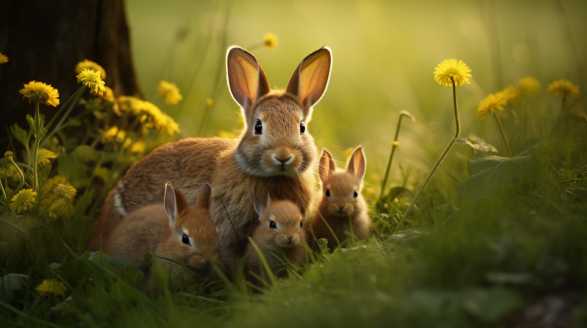
When Do Pregnant Rabbits Start Nesting
Introduction When do pregnant rabbits start nesting? Let’s find out. Picture this: a fluffy, adorable rabbit, with a twinkle in her eye and a bulging belly, embarking on a magical quest to prepare for the arrival of her precious little kits. As a passionate rabbit lover, I couldn’t resist delving into the secrets behind their […]
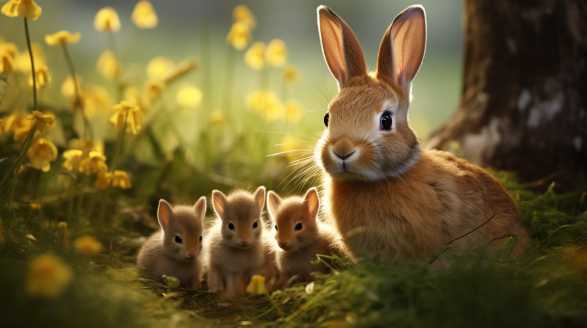
When To Wean Rabbits
Introduction Are you ready to embark on the journey of transitioning your baby to solid food? Well, you’re in the right place! I understand that this can be a confusing and slightly overwhelming phase, but fear not! I’m here to guide you every step of the way. As a parent, one of the most thrilling […]
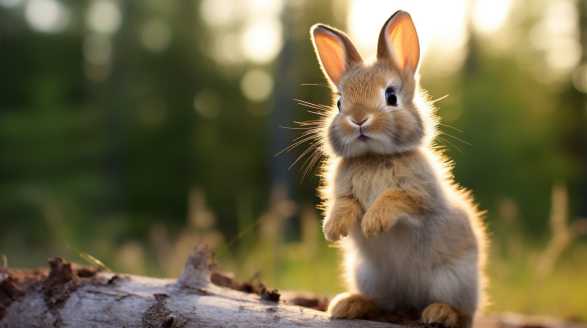
Do Rabbits Recognize Their Owners
Introduction Have you ever wondered if your fluffy, hoppy companion recognizes you as their owner? Many rabbit owners, including myself, have pondered this fascinating question. After all, rabbits are known for their adorable faces and unique personalities. we’re diving deep into the world of rabbit cognition and exploring whether rabbits can form emotional bonds, identify […]
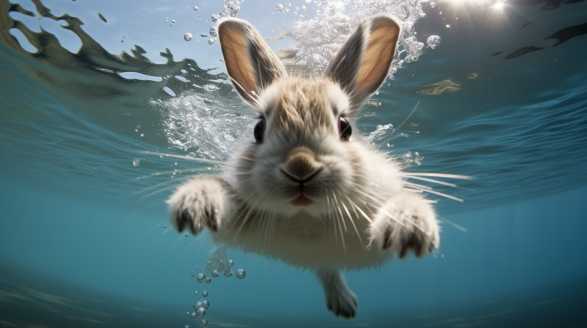
Can Rabbits Swim
Introduction Can rabbits swim? Let’s find out. Together, we’re about to embark on an underwater adventure to uncover the truth behind rabbits and their hidden aquatic abilities. Picture this: fluffy little rabbits gracefully gliding through the water, their ears adorably upright as they navigate the depths below. Sounds pretty incredible, right? It’s like discovering a […]
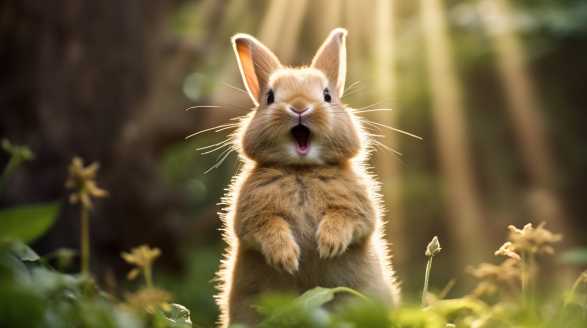
How Many Teeth Do Rabbits Have
How many teeth do rabbits have? Let’s find out. Rabbits, adorable and endearing creatures, have quite the dental arsenal hiding behind their furry exteriors. Contrary to popular belief, these herbivorous mammals possess an impressive set of teeth. With a grand total of 28 teeth, rabbits have incisors, premolars, and molars, all strategically placed to munch […]
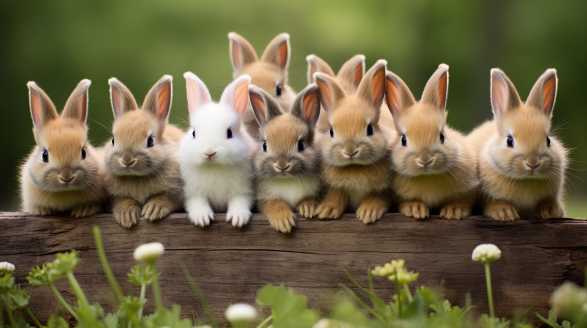
All About Rabbit Colonies
Introduction As a self-proclaimed animal enthusiast, I’ve spent countless hours observing and studying the incredible world of wildlife. But today, I’m thrilled to look into one of my absolute favorite creatures of all time – the wild rabbit! Picture this: lush green fields, a gentle breeze, and a community of wild rabbits scurrying about with […]
